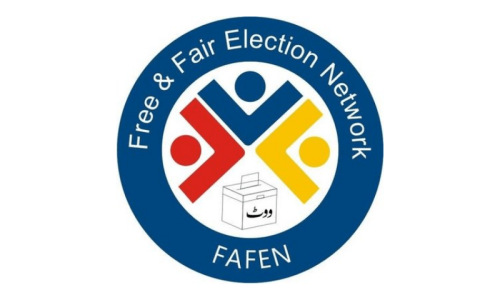She was the least pretentious and hypocritical. She would refuse, in the words of T. S. Eliot,“to prepare a face to meet the faces that you meet.”
She had the guts of an artist with strong likes and dislikes, never in need of concealing her inner feelings. For some frequenting her house, who pretended to be writers and artists, she had nothing but contempt. She would never suppress her opinion in the matters of art and culture just for the sake of appearing to be civil with an affable smile. On the one hand her training in classical music enabled her to sing Ragas and classical compositions in a distinct style and on the other helped her develop taste for seeking perfection in socio-cultural products. If she found Kesar Bi Kerkar, a perfect classical vocalist, she would say so loud and clear and if someone tried to hide their deficiencies in singing with callow sloganeering, she wouldn’t let it go unexposed. Music for her was always more sacred than being politically correct. She rarely upheld savoir faire as virtue as far as creative expression was concerned. She could confront pseudo artists without being sanctimonious.
Samina Hasan (1944-2016) married Najam Hosain Syed, one of the leading intellectuals of our times. He is a highly creative and versatile writer but not all know that he is also gifted with faculty to compose music. Husband and wife complimented each other in their music pursuits. Singer and music composer formed an enviable duo in our cultural landscape. Theirs has been an open house in a society driven by crass materialism where upper class philistines sell gated communities as social pride. The story of open house is simple though its intended and unintended consequences have been complex. In early 1970s Najam Hosain and his younger contemporaries got together with a view to pursuing literary and cultural activities. The motive was not merely to get connected with the literature and culture of the Punjab but also to re-interpret them from a progressive theoretical perspective. The main concern was to create a counter cultural narrative to fight the deleterious effects of the cultural vision (lack of vision in fact) upheld by the intellectually bankrupt Punjab’s elite.
A weekly meeting on regular basis started at Najam Hosain’s house which was open to all interested in Punjab’s literature and culture. A classical poet would be selected. A selection of verses would be made by Najam Hosain. Participants would sit on the floor. Each participant would read/recite it. When finished with reading, the meanings of difficult words and complex phrases would be explained. Then the house would open for discussion. At the end there would be collective singing of the verses. Samina Hasan would obviously lead the singing. The music part had to be prepared and rehearsed a week before. Simple but delicious meal would be served before the dispersal. All this would not have been possible without Samina Hasan’s consent and cooperation who had to look after her kids, Risham and Risaal, apart from her teaching job at Home Economics College. The activity demanded not only extra money but also additional time and energy. Generous hospitality had its cost and she bore it. She happily and at times not so happily suffered intrusion into her house by rookie writers and artists who had aspirations and pretensions but no requisite talent. She tolerated some of the ill-cultured who surrounded her husband at her house almost day and night at the expense of her private life. It’s not easy to bask in one’s comfort zone when boundaries between public and private life stand blurred.
Among the founding members of this literacy group called “Sangat” included Manzur Ejaz, Izzat Majeed, Akmel Hussain, Azmat Qadir (late), Shuja ul Haq, Tahir Yasoob (late), Fayyaz Baqir, Chaudhry Majeed (late), Mushtaq Soofi and some other young men and women. Retired Col Nadir Ali, Akram Warriach, Iqbal Rashid and Zoya Sajid joined the group later. Writers from other cities such as Abid Ameeq (Multan), Rashid-uz-Zaman (Bahawlnagar) and Irshad Taunsvi (Taunsa, D.G.Khan) frequently attended the meetings.
This activity, a melange of different literary expressions, led to composing Punjab’s classical poetry. A large number of tunes made by Najam Hosain’s were recorded in Samina Hasan’s mellifluous voice that enabled her to extend her repertoire. Her renditions of classical poetry, we hope, will be put on internet soon for free public use. Sharing the poetry and music with the people will be a real tribute to her.
Contribution made by Samina Hasan in re-interpreting our poetry through her voice is remarkable but this creative endeavour hasn’t been without a price. She like any genuine artist suffered from a creative chaos. Being a woman she suffered more because of our peculiar socio-cultural conditions which force women to play multiple but contradictory roles in private and public space. To be a good wife may not be the same as being a good artist. She strove hard to be both; a supportive wife and a good artist. Achieving balance has never been easy if we look at the lives of female artists the world over. She however managed to practice music all her life whatever the cost. One could always feel the haunting resonance of her voice at her house as long as she lived. How dreary, dear Samina ji, would have been your big old house by the road with its Sukh Chayn tree without your singing voice wafting up from the general noise of the city. A voice still rises from her house but it’s not hers, it’s that of her daughter, Risham, a talented visual artist and vocalist. Najam Hosain still composes music but with pain in the present absence of Samina Hasan. —soofi01@hotmail.com
Published in Dawn, September 30th, 2016










































